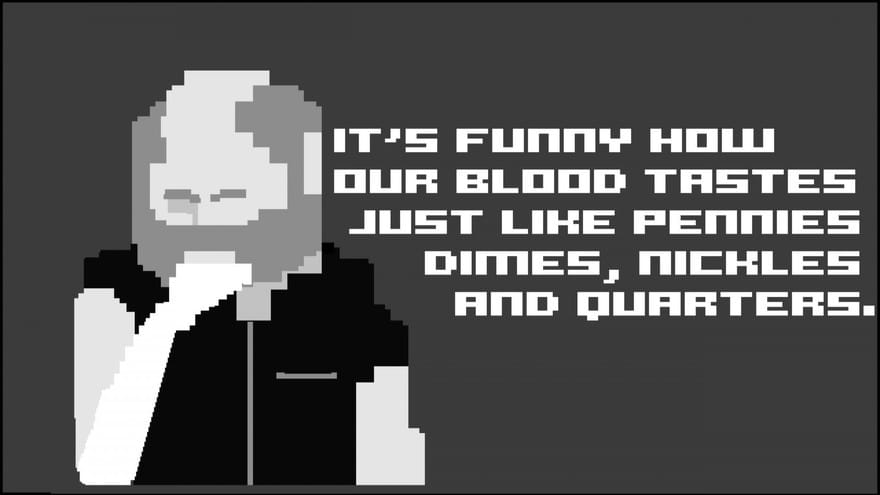Lance Armstrong stands in the crosshairs of America’s peculiar ideas of success and failure. Quoted as saying, “Pain is temporary; quitting lasts forever,” this statement embodies a clear dichotomy between struggle and failure, with no in between. Armstrong came from a fractured home and overcame testicular cancer to win cycling’s Tour de France a record seven times. He founded Livestrong, a nonprofit for people battling cancer that became a household brand through its recognizable yellow bracelets and inspirational lifestyle advice. Armstrong and his mythos represent the idea that a person can rise to prominence through the continued application of effort; as long as you work hard, no matter how painful it is, success is assured. However, allegations of Armstrong’s longtime use of performance-enhancing drugs arose in 2002. Multiple investigations were undertaken, and in 2012 he was stripped of his wins and banned from professional cycling. His sponsors fled in droves, he stepped down from Livestrong, and, once a symbol of success, he became a symbol of cycling’s darkness; in the words of the International Cycling Union, “Today’s young riders do not deserve to be branded or tarnished by the past or to pay the price for the Armstrong era.” This “Armstrong era” is one in which, when the idea that hard work isn’t enough is incomprehensible, you climb to success on a tower of blocks you build against failure, piling more and more barriers between yourself and the ground until gravity takes over.
The idea that hard work guarantees success is a narrative in many ways native to sports, but games delight in it as well. The hero overcoming all obstacles when things seem bleakest is an appealing story, especially when it’s a reflection of one’s character. Winners never quit and quitters never win, and games reward us with this idea in myriad ways. We play long hours to get the XP that makes us stronger, faster, and better; we practice platformers and multiplayer shooters until we perfect them; picking the paragon option in games rewards us with gifts and skill points that conflate our moral compasses with the path to victory. The equation of hard work with success is one of the essential promises of America, a land that claims to dispense prosperity to everyone with the fortitude, character, and moral fiber to chase after it. Success isn’t something you get but someone you are, and though Lance Armstrong’s rise and fall throws a wrench in that dream, there are hundreds of other stories that flag him as an outlier and a fluke and call us back to the straight and narrow of the American dream.

Success as a feature of a person’s character has deep roots in American history through our religious foundations. Max Weber’s seminal The Protestant Ethic and the Spirit of Capitalism traces hard work as a personal virtue through early Americans’ Calvinist backgrounds and the doctrine of predetermination; unable to know whether they were one of the saved or the elect, and with doubt as to one’s salvation seen as a sure sign that one wasn’t saved, early America’s Heaven-minded capitalists saw success in business as a sign that God had chosen them. Weber’s ethic transformed in the late 19th century in the works of Horatio Alger, whose tales of a New York bootblack rising to fiscal prominence through moral correctness and bootstrapping removed religion from capitalist success in exchange for an inherently superior character.
Around the same time, overhauls in American religions undermined Calvinist doctrines even further to give rise to trends like the New Thought Movement, most remembered for inspiring Mary Baker Eddy and Christian Science. New Thought removed the last of Calvinism’s predetermination from Alger’s hard-working hero by making his right thinking and upstanding nature accessible to anyone who had the right mindset. New Thought believed that people made their own health and success through their attitudes, and while this had the arguably positive effect of making success something anyone could attain, not just the chosen elite, it nevertheless centered success on the inherent makeup of the individual and equated economic prosperity with character, whether spiritual or moral. This idea regained its Christian flavor after World War II through the rise of prosperity theology, teaching that God anointed His chosen with money and reaffirming Weber’s reading of the pursuit of wealth as a higher spiritual calling. While still alive through televangelists like Joel Osteen and Pat Robertson, prosperity gospels have also transformed into the amorphous self-help we see today in The Secret and countless other books on positive thinking, both the esoteric and vaguely Eastern and in straightforward business books like Who Moved My Cheese? and The 7 Habits of Highly Effective People. While “salvation” has been replaced with a host of synonyms for success, it’s still the old fear of hellfire in new clothes. Failing means you’re a failure, whether in the eyes of God or capitalist society; meanwhile, success is open to anyone who happens to be a success.
Success as a feature of a person’s character has deep roots
While it’s easy to see the more outlandish modern self-help claims as scams or schlock, Americans remain blindly tied to bootstrapping their way into God’s good graces in a world where God has been replaced by the American dream. Surveys by The Atlantic and the Pew Research Center found that most Americans today are more concerned with keeping the money they have than pursuing the upward mobility associated with the American dream, which most believed was suffering in light of the housing crisis, unemployment, and the stock market crash. The people surveyed demonstrated a sober recognition that there are more hardships and obstacles facing their pursuit of success than ever before, but they continued to see themselves as the elect: 72% of Atlantic respondents believed themselves to be living this same American dream they claimed was suffering, and nearly 85% claimed to be satisfied with their lives and optimistic about the future despite recognizing how difficult it is for most people to stay afloat. Most respondents seemed to recognize that people were struggling while being unable to face the idea that they were. The Atlantic calls this a “gap between national pessimism and personal optimism,” and perhaps it stems from the religious history of our ideas about success; the world may be a mess, but we know ourselves to be blessed. We hold tight to the story that we are the ones to achieve success in spite of everything, because success comes from inside us rather than our circumstances.
Politicians on both sides continue to preach the bootstrapping myth to their constituents in exchange for heartfelt votes, despite clear evidence that it no longer holds true. Education is seen as one surefire way to rise from the bottom like Alger’s hero; in a Vanity Fair poll, 47% of respondents believed education was the key to success, regardless of its growing financial burden and the consequences of debt. Americans still see education, like success, as being available to everyone with the right attitude. Being the kind of person who sacrifices for their education is deeply rooted in Weber’s Calvinism, and Americans’ plucky positivity in the face of challenge is the obvious progeny of New Thought and its descendants. Countless Americans wake up every day, fasten their bootstraps, put on a can-do attitude, and march out into the world breathlessly reassuring themselves that as long as they aren’t quitters, they’ll sit at the right hand of capitalism’s throne. Those who don’t make it, those business majors working at McDonald’s, surely just didn’t try hard enough, surely just weren’t the right kind of person. Whatever evidence comes our way, successes are successful, whether through grace or positive thinking, and everyone has the equal potential to become one of these success stories— unless, as Donald Trump is fond of saying, they’re losers, people who refuse to take up the mantle of success, from whom we must distance ourselves at all costs. People like Lance Armstrong highlight this fallacy, going from “winner” to “loser” in the blink of an eye, but we push them away as aberrations, steadfastly reassuring ourselves that each one of us is better than everyone else, that who we are is much more the key to our success than what we do.

Games have considered these ideas in the past in different ways. Cart Life, for instance, uses the repetitive actions of daily life to show how hard it is for people to succeed despite their best efforts and attitudes. Cart Life shows us that we can do everything right and still fail, that success is hugely a matter of circumstances beyond our control rather than a statement on our personal character. It is upfront about grappling with these issues, setting it apart from other games that touch on them inadvertently through gameplay staples like winning and losing, challenge and effort. As a medium that can break down parts of complex human issues into systems of actions and objectives, games are uniquely situated to explore and even undermine the myth of the American dream, not just as a topic but as a feature of their core mechanics.
One game that undertakes this endeavor is recent platformer The Swindle, by English studio Size Five Games. The player has 100 days to amass enough capital to break into Scotland Yard and deactivate a crime-stopping machine that promises to put an end to their days of thievery. When one thief dies, another takes their place, but money and more importantly upgrades remain consistent across characters. The nature of these upgrades is at the core of The Swindle’s quiet, presumably unintentional, attack on the American understanding of success as a character trait. To start, the player moves through increasingly harder and more lucrative areas, access to which must be purchased via the funds from previous heists. The ability to hack computers, which pay out the most money, also has to be bought, followed by upgrades to hack doors or security systems. Hacking can be upgraded further to hack faster, to turn enemies into allies, or to plant bugs that will drain money from computers after the player has left the level. Some upgrades are tools, like bombs, remote detonators for mines, or clouds of steam that provide brief cover. These tools must all be paid for, carefully weighing the benefits against their price in a mad scramble to amass enough money to afford to see the end level while also buying the tools necessary to beat it.
we can do everything right and still fail
Most interesting, though, are the movement upgrades. The Swindle has been compared to Spelunky and Mark of the Ninja—tight, precise games that give the player an innate sense of grace and skill. The Swindle’s thieves, by contrast, are bumbling, clumsy hopefuls, initially armed with nothing but the ability to hop short distances and scoop money off the floor. Movement upgrades provide the ability to double and triple jump, to stop sliding on walls, and to stick to windows and other surfaces. The ability to look up and down in a level, key to Spelunky, can be purchased, as well as Mark of the Ninja’s ability to see sound radius, which is essential for making risky dashes or getting close to patrolling enemies. It’s here that the game undermines the idea of progress inherent to most other games. Regardless of the movement upgrades purchased, the player character always remains somewhat imprecise and inelegant. Upgraded jumps allow you to jump higher but not necessarily better; you’ll still fumble on a ledge and fall to your death, or hit an impassable barrier churned out by how the game generates its changing levels. Your thieves aren’t master thieves, nor does the game cater to this fantasy. Instead, you gracelessly accumulate money and tools that do little more than place things between yourself and failure. Even later levels, if you’ve planned enough to be rich with tools of the trade, never give you a sense of improvement and mastery. You’re always a step away from failure; nothing you do can change the basic human core of each of your thieves, just as unskilled as the first, merely better-equipped.

Like Donald Trump and other elites, your later thieves have better shots at success due to the wealth of their predecessors. However, the game’s refusal to essentially improve them, to not play into the capitalist fantasies of practice making perfect or being assured victory through some essential part of your being, highlights the unreal nature of the American dream. You can never get away from yourself in The Swindle, can never escape simply being nothing more than someone who wants something. It makes every success a mad dash, part tools, part a fortunate level layout, and part your own scrambling effort. In a way you’re Lance Armstrong after his fall, just a person with some strengths and weaknesses, hurrying after a goal. A string of bad levels sets you back and asks you to change tacks; some commenters have pointed out that it’s tempting to quit and restart in these instances, but the game doesn’t incentivize either choice. You’re as likely to have a bad luck streak in one playthrough as in any other, and quitting and restarting is merely one in a range of choices toward your final goal. There’s no power fantasy to be had here, no roleplaying as a master thief, and through this The Swindle fails to tell the story we demand from our games, our idols, and ourselves. Instead, it tells a story of goals, setbacks, and efforts, the relatable pushing along of real people rather than heroes or God’s anointed. It sings no songs of your specialness, of what you deserve, of winning if you try. You aren’t a success or a failure; you’re just you, faced with possibilities, privileged in some areas and flawed in others. By undoing the idea of success as a characteristic, The Swindle tells a new, truer story. Pain may still be temporary, but quitting doesn’t last forever; neither does success.
///
Lance Armstrong photo by Hase via Wikimedia Commons





